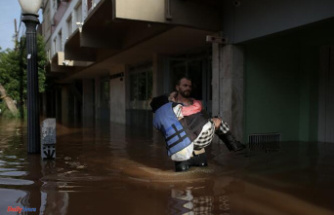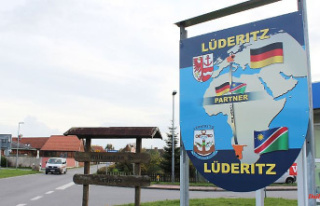Integration courses usually last a few months. Almost 24,000 people from Ukraine have already started such a course in Bavaria. Another number is even higher.
Nuremberg (dpa / lby) - The number of entitlements to participate in integration courses is heading for a record value in Bavaria and throughout Germany. According to the Federal Office for Migration and Refugees (Bamf), from January to the beginning of November this year there were already 84,800 such authorizations in Bavaria and 560,000 nationwide. That is around 26,000 more than in the previous record year 2016 in Germany. The numbers could still change due to subsequent recordings, it said. Integration courses were therefore introduced in 2005.
Most entitlements to participate were granted in North Rhine-Westphalia (114,000) this year. Baden-Württemberg (77,100) follows Bavaria in third place.
A large part of the nationwide authorizations went to people from Ukraine last year - around 355,300 nationwide and 53,000 in Bavaria. Almost 163,000 of them have already started a course, in Bavaria it was almost 24,000.
According to the information, integration courses consist of 700 hours. The language part makes up 600 hours, the other 100 hours are about values, the legal system or the social system.
The courses are put together according to the respective language level and are aimed at all immigrants - regardless of their origin. Only adults attend these integration courses, while school attendance is compulsory for minors in Germany. There are numerous educational opportunities there.
According to the Federal Office, the integration courses for Ukraine refugees were opened in mid-March 2022. These courses usually last seven to nine months, and special and part-time courses longer. Many would have started in May and June - so far relatively few have completed a course.
Since the start of the Russian war of aggression at the end of February, more than a million war refugees from Ukraine have come to Germany, at least temporarily - around 35 percent of them are children and young people under the age of 18, most of them of primary school age.












